Serving the Nation
by Samir W Raafat - 20 May 2012
based in part on the book Privileged for Three Centuries
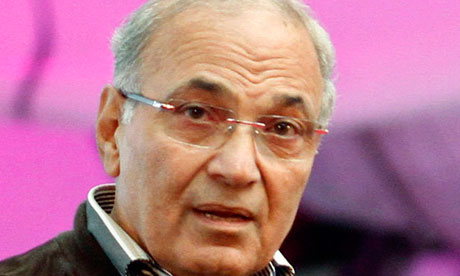
presidential hopeful retired Air Marshal Ahmed Shafik (Zaki)
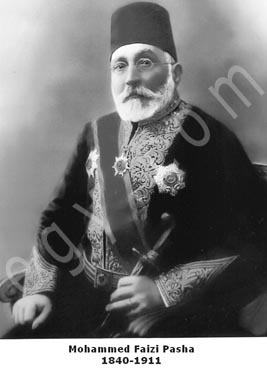
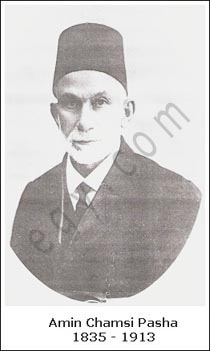


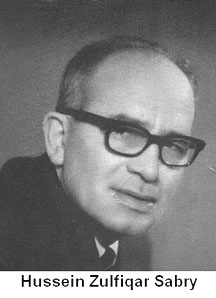

six statesmen from among Ali Agha's descendants
|
|
|
|
|
|
EGY.COM - HISTORICA
|
|

presidential hopeful retired Air Marshal Ahmed Shafik (Zaki)






six statesmen from among Ali Agha's descendants
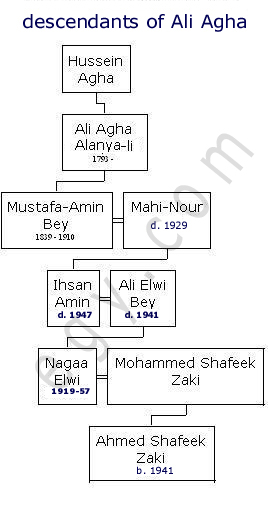
|
Decidedly the candidates running for Egypt's highest office represent a narrow kaleidoscope of Egypt's social network. Of the original thirteen the two oldest, both septuagenarians, are often described in the media as foulool—a disparaging term meaning Mubarak holdovers, with abundant YouTubes used as corroborating evidence. And while two candidates have military backgrounds, the rest are mostly dull white collar civil service types: lawyers, medics, professors... All are Muslim males half of them belonging to the more conservative elements of society (Islamists). The rest profess to be moderates or liberals. Stemming from modest to middle class backgrounds almost all claim roots in rural Egypt in their transparent effort to woo the agricultural sector that forms the backbone of the electorate.
Perhaps a reflection of republican values merely two of the thirteen candidates—the retired air marshal and the diplomat-turned-politician—belong to the distant old bourgeoisie with ancestors who were either lawmakers or cabinet ministers in Egypt's pre-1952 parliaments. The air marshal can climb further claiming towering roots during the reigns of Khedive Ismail and Viceroy Mohammed Ali Pasha. For more on that you need to refer to Privileged for Three Centuries published in 2011 which exposes a family saga across three hundred years of Egypt's modern history. Therein we discover how its main characters played a determining role in three revolutions: Orabi Pasha's 1882 revolt, the revolution of 1919 with the resultant creation of the Wafd Party, and the July 1952 military coup (dubbed revolution) that toppled the monarchy. They were the men of their hour.
It now appears another member of this family is trying to forge for himself a place in history—a direct outcome of the young people's January 2011 revolution. The difference here is that Ahmed Shafik's familial forerunners launched their careers while still under 40, whereas this new kid on the block is 71. If he were to succeed he would be joining that ultra restricted club of "senior-citizens-for-chief-executive". This way Egypt would have gotten itself an old new president. But in all fairness he does look trim and fit—a real cool dandy when compared to his running mates especially the one pushing 77. Go for it granpa!
Now let's progress backwards for some history.
From Privileged we learn that during Mohammed Ali's era an Ottoman soldier named Ali Agha came to Egypt from the Balkans, which at the time was referred to as Rumelia, one of the more important provinces of the Ottoman Empire. Understandably, Mohammed Ali had a preference for members of his kith and kin hence the high incidence in 19th century Egypt of soldiers originating from Kavala and Drama in Makedonya (Macedonia), from Mora (Morea) in Yunanistan (Greece), and from various towns and hamlets in Arnavutca (Albania). Ali Agha Ibn Hussein came from the latter, precisely from the coastal town of Vlore (Avlonya in Ottoman), which is today one of the bigger ports in modern day Albania.
In view of his geographic origins and to differentiate him from countless other Ali Aghas, the soldier in question was nicknamed Ali Agha al-Alanya-li; the appendage being a local phonetic corruption of the original Avlonya-li.
As a member of al-Nizam al-Jadeed founded by Mohammed Ali in his attempt to replace the old Mamluk cast with a modern Egyptian army, Ali Agha climbed the military echelons from a young foot soldier to a seasoned Kaimakam or colonel. During his ascent he took on two successive brides. The first belonged to the patrician 18th century Chamsi family, which the book Privileged discusses at length. But when teenage bride No. 1 died at childbirth leaving behind a newborn son named Soliman Chamsi, Bimbashi—Major Ali Agha took on a second wife. From these two wives he had six sons and two daughters each of them founding his/her own mini-dynasty some more prominent than others in terms of patriotism and service to the state.
Most outstanding among Ali Agha's six sons was Mohammed Faizi Pasha (1840-1911). A member of the inner circles of power he served three khedives (Ismail, Tewfik and Abbas-Hilmi), first as a Turkish-Arabic translator in the ministry of interior and later as governor of several provinces in Upper Egypt ending with the plum governorates of Gharbeya and Menouffia in the Nile Delta. His last post was minister of Awkaf with the title of director-general.
According to Privileged for Three Centuries, two of Faizi Pasha's brothers, namely Hussein Fahmi Bey (1837-1909) and Mustafa Amin Bey (1839-1910), were senior civil servants. Together with Faizi Pasha they amassed large tracts of land in Fayum and Upper Egypt becoming feudal lords in the process. These assets were further supplemented when their childless sister Fatma died, leaving behind considerable properties inherited from her husband Mustafa Taher al-Alanyali, a nephew and countryman of Ali Agha. An 1889 waqf or trust document lists in detail the whereabouts of these agricultural lands naming its beneficiaries. Among them we find the name Mustafa Amin ibn Ali Agha al-Alanyali ibn Hussein. From a similar published source we learn that Mustafa Amin Bey wed the Turkish Mahi-Nur and had two daughters: Wadood and Ihsan. The latter having married Doctor Ali Elwi Bey begot Nagaa Ali Elwi, Air Marshal Ahmed Shafik's mother.
(Note: the brother of Dr Ali Elwi Bey was the renown ophthalmologist Mohammed Elwi Pasha. And a sister of Nagaa Ali Elwi married the distinguished legal mind and Wafdist minister of justice, Sabry Abou Allam Pasha.)
Most prominent among Ali Agha's grandsons was Amin Soliman Chamsi Pasha (1835-1913). A member of Egypt's first legislature he retained his seat in the General Assembly (Parliament) until his death. During his lifetime, Chamsi Pasha, together with elders of the Abaza clan, was the recognized leading notable in Sharkia, the birthplace of Ahmed Shafik. As was customary then, Amin Chamsi's parliamentary seat was passed on to his son. Hence it came as no surprise when Ali Agha's great grandson, Ali Chamsi Pasha (1885-1962), a founder of the Wafd Party, was given several government portfolios in subsequent Wafd governments. Long regarded a Wafdist heavyweight and senior statesman, Chamsi Pasha II played a determining role in enhancing Egypt's economy in the 1930s and 1940s before becoming the first Egyptian to head the Central Bank (National Bank of Egypt), which until then was a British preserve. He was also Egypt's first and only chief representative to the League of Nations.
Throughout Egypt's parliamentary era many other Ali Agha's descendants sat on different sides of the aisle in parliament including members of the Chirbini, Alfy and Marei clans.
Similarly we find among the more famous Alanyali descendants wing-commander Ali Baligh Sabry (1920-91) whose paternal grandmother Nefissa bint Ali Agha was a sister of Mustafa Amin. As a Free Officer Sabry played a crucial role in the early days of the 1952 coup which toppled Egypt's monarchy. Like Ahmed Shafik he too was a member of the Air Force eventually rising to the rank of air marshal. In the meantime he occupied the posts of prime minister under Nasser and later vice president under Nasser and Sadat. His brother Hussein-Zulfiqar Sabry (1915-94) ran Egypt's foreign affairs in the 1950s becoming advisor to Presidents Nasser and Sadat.
Foreign minister Mohammed Ibrahim Kamel (1927-2001), another Ali Agha great-grandson, made history in international relations when he differed with Sadat and abruptly resigned from office during the drafting of the 1978 Camp David Accords. Both Hussein-Zulfiqar Sabry and Moh Ibrahim Kamel left behind valuable memoirs and testimonials much appreciated by historians and researchers alike.
There were also the great-grandsons who served in non-governmental capacities. Foremost among them was constitutional expert Dr Wahid Raafat (1906-87) whose role in the Taba arbitration was pivotal in Egypt's reclaiming Israel's remaining toehold in Sinai. Alas, for space considerations one cannot list all the other non-partisan descendants but they were many.
Understandably the more recent generations of Ali Agha's by now diluted progeny don't necessarily know one another since almost two hundred years separate them from their common Albanian ancestor. It is even doubtful that Shafik is aware of the above interaction since he lost his connection with his extended maternal family when his mother died while still in his mid-teens. Well now he knows and has several genetic role models to choose from.
Soldier Ali Agha came to Egypt 200 years ago to make his fame and fortune. Little did he suspect that over time his progeny would interlock at the highest levels with the nation's destiny and that in 2012, during a rare free election, his 71 year old great great-grandson would aim for the country's presidency!
As the saying goes, truth is sometimes stranger than fiction...
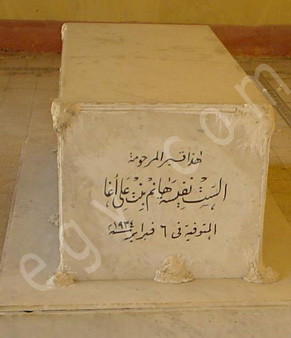
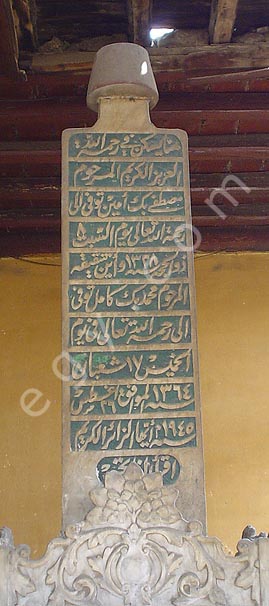
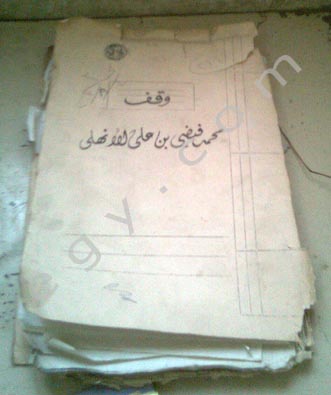

Note: Shafik also spelt Shafiq, Shafeek, Shafeeq, Chafik
|
|
|
|